Mr. Smith Goes to Washington

Brief Synopsis
Cast & Crew
Frank Capra
Jean Arthur
James Stewart
Claude Rains
Edward Arnold
Guy Kibbee
Film Details
Technical Specs

Synopsis
The untimely death of Senator Foley presents problems for political boss Jim Taylor, who needed the senator's help to perpetrate a land swindle at Willet Creek. Taylor orders Governor Hubert Hopper, whom he controls, to appoint a yes man, but citizen committees want someone else. Hopper is also besieged by his sons, who ask him to appoint Jefferson Smith, the patriotic leader of the Boy Rangers. Confused, Hopper appoints Jeff, then convinces Taylor that naïve Jeff cannot learn enough about politics in time to affect the crooked bill. Jeff's appointment as junior senator is also supported by the senior senator, Joseph Paine, who is both Taylor's stooge and Jeff's idol. Jeff and Paine go to Washington, where Jeff, overwhelmed by his first sight of the Capitol dome, leaves the group and boards a tour bus. Five hours later, he reaches his office, where his cynical secretary, Clarissa Saunders, is waiting for him with her chum, newspaperman Diz Moore. They think Jeff's patriotic spirit is hokum, and Saunders engineers a disasterous press conference for Jeff. The next morning, Paine takes Jeff to be sworn in at the Senate, where one senator objects, alleging that the newspaper stories prove Jeff is unfit. Paine defends Jeff, and after he is sworn in, enraged Jeff goes on a rampage, slugging the reporters, who label him an "honorary stooge." The truth of it stings Jeff, and after seeking advice from Paine, who tells him to sponsor a bill proposing a national Boy Rangers camp, Jeff and Saunders stay up all night working on the bill, which Jeff presents in the Senate the next morning. Despite Jeff's nervousness, the senators like his ideas, except for Paine, who is horrified to discover that Jeff wants to use Taylor's Willet Creek site. Paine knows that Jeff must not be in the Senate the next day, when the Willet Creek bill is being discussed, and so he resolves to distract Jeff with his beautiful daughter Susan. Jeff is thrilled by Susan's attentions, but the next night, Saunders, drunk with Diz, becomes distraught over the way Jeff is being misled. She asks Diz to marry her, and they return to her office to collect her things. Jeff is there when they arrive, however, and she tells him about Paine, Taylor and the graft. As they leave, Diz realizes that Saunders is in no shape to get married, and he takes her home. Stunned by Saunders' revelations, Jeff rushes to Paine's house to confront him, but Paine tries to smooth-talk him. Later, when Taylor himself arrives, he tells Jeff that he runs Paine, and that if Jeff is smart, he will cooperate. The next day, Jeff attempts to speak against the crooked bill, but, not understanding rules of protocol, yields the floor to Paine, who denounces Jeff on charges of using the boys camp for personal gain. Some time later, at Jeff's hearing before the Committee on Privileges and Elections, Hopper, Paine and others present phony evidence that Jeff owns the land upon which he wants to build the camp. Jeff is so dumbfounded by Paine's lies that he cannot testify on his own behalf and decides to leave Washington. Later that night, Jeff goes to the Lincoln Memorial, where Saunders finds him and convinces him to attempt a filibuster. The next morning, after a night of coaching, Jeff reveals the truth about Taylor and Paine to the Senate, even as Paine continues trying to condemn him. Jeff intends to talk until his news reaches his home state, and the people rise up against the corruption, but Taylor organizes a massive newspaper campaign against Jeff. Many hours later, Saunders cheers up Jeff with a note telling him she loves him, and then calls his mother, telling her to enlist the Boy Rangers to spread the truth. The boys publish their tiny newspaper, but Taylor's gang steals the papers and injures some of the boys. Back at the Senate, Paine brings in 50,000 telegrams drummed up by Taylor, all of them urging Jeff to quit. Though discouraged, Jeff resolves to keep fighting, but after he gives one last speech to Paine, he collapses from exhaustion after the almost twenty-four hour filibuster. Paine finally breaks down, and after attempting suicide outside the senate chamber, confesses that everything Jeff has said is true. Everyone in the room cheers and Saunders jumps for joy.

Director

Frank Capra
Cast

Jean Arthur
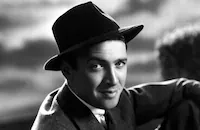
James Stewart

Claude Rains

Edward Arnold

Guy Kibbee

Thomas Mitchell
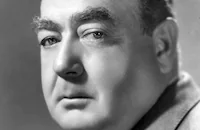
Eugene Pallette

Beulah Bondi

H. B. Warner
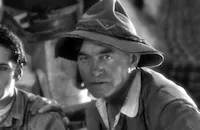
Harry Carey
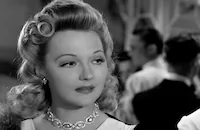
Astrid Allwyn
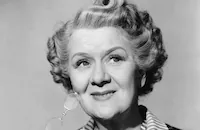
Ruth Donnelly
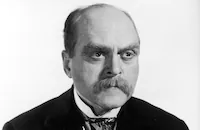
Grant Mitchell
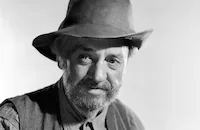
Porter Hall

Pierre Watkin

Charles Lane

William Demarest
Dick Elliott
Billy Watson
Delmar Watson
John Russell
Harry Watson
Gary Watson
Baby Dumpling
H. V. Kaltenborn
Ken Carpenter

Jack Carson
Joe King
Paul Stanton
Russell Simpson
Stanley Andrews
Walter Soderling
Frank Jaquet
Ferris Taylor
Carl Stockdale
Wright Kramer
Alan Bridge
Edmund Cobb
Arthur Loft
Frederick Burton
Harry Bailey
Wyndham Standing

Robert Walker
Victor Travers
John Ince
Sam Ash
Ed Mortimer
Philo Mccullough
Frank O'connor
Harry Stafford
Jack Richardson
Vera Lewis
Dora Clement
Laura Treadwell
Helen Jerome Eddy

Ann Doran
Beatrice Curtis

Byron Foulger

Frank Otto
Jack Rice
Eddie Fetherston
Ed Randolph
Milt Kibbee
Vernon Dent

Michael Gale
Anne Cornwall

James Millican
Mabel Forrest
Nick Copeland
Dulce Daye
Clyde Dilson
William Newell
George Chandler
Gene Morgan

George Mckay
Matt Mchugh

Evalyn Knapp
Dub Taylor
Jack Gardner
Donald Kerr

Eddie Kane
William Arnold
Hal Cooke
James Mcnamara
Jack Egan
Eddy Chandler
Dick Fiske
Billy Wayne
Phan H. Levy
Frederick Hoose
Count Stefenelli
Alex Novinsky
Burr Caruth
Frank Austin
Allan Cavan
Maurice Costello
Lloyd Whitlock

Frank Puglia
Erville Alderson
Maurice Cass
Harry Bradley
Lou Davis
Brooks Benedict
Robert Morgan
Rev. Neal Dodd
Robert Middlemass
Alec Craig
Harry Hayden
Georgia Caine
Frank M. Thomas

Louis Jean Heydt
Wade Boteler
George Lloyd
Joe Palma
Harry Anderson
Charles Regan
Jack Low
Robert Emmett Keane

Mary Maclaren
Olaf Hytten
Wilson Benge
John Lester Johnson
Ed Thomas
Davison Clark
Landers Stevens
William Worthington

Lloyd Ingraham
Larry Steers
Jesse Graves
Georgia Cooper
Kathryn Bates
Florence Wix
Gladys Gale
Blanche Payson
Jane K. Loofbourrow
Catherine Courtney
Bessie Wade
Emma Tansey
Eleanor Wood
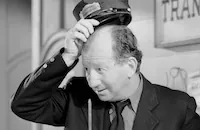
Hank Mann
Jack Cooper
Eddie Coke
Lynton Brent
Max Waizman
John Ward
James Lucas
Joe Devlin
George Cooper
Eddie Brewer
Ralph Mccullough
Hugh Brundage
Dave Willock
Roger Haliday
Myonno Walsh
Wilfred Hari
Snowflake
Charles Moore
Charles Sullivan
Arthur Thalasso
Wally Dean
Anita Young
Frederick Vroom
Margaret Mann
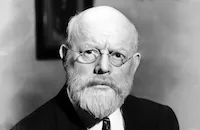
Howard Mitchell
Harry Depp
Gino Corrado
Ben Taggart
Field Norton

Wilfred Lucas
Lafe Mckee

Dickie Jones
Layne Tom Jr.
Ray Nichols
Sammy Mckim
Phillip Hurlic
Frank Bellan
Billy Lechner
Jackie Lowe
Tommy Baker
Douglas Evans

Walter Sande
Harlan Briggs
John Dilson
Gayle Morris

Frances Gifford
Lorna Gray

Linda Winters
June Gittelson
Mary Gordon
Shirley Coates
Frank Hammond
Frank Arthur Swales
Constance Bergen
Beryl Wallace
Dorothy Short
Dorothy Dugan
Franz English
Henry Roquemore
Lester Dorr
Crew
Rex Bailey
Lionel Banks
Edward Bernds
Arthur S. Black
Sidney Buchman
Forrest Butler
Frank Capra
Al Clark
Myles Connolly
Lewis R. Foster
George Hager
Faye Hanlin
Gene Havlick
John Hoffman
Walter Holscher
Ray Howell
Helen Hunt
Fred Jackman Jr.
William Jolley
Kalloch
George Kelly
William Knight
Al Later
Irving Lippman
James Lloyd
Enzo Martinelli
Richard Mcwhorter
George Montgomery
Roselle Novello
Cary Odell
Fred Phillips
James D. Preston
A. L. Schafer
Victor Scheurich
Joseph Sistrom
M. W. Stoloff
Dimitri Tiomkin
Charles Vidor
Slavko Vorkapich
Joseph Walker
Harold Winston
Jack Wren

Photo Collections
Videos
Movie Clip






Trailer
Hosted Intro







Promo
Film Details
Technical Specs

Award Nominations
Best Actor
Best Art Direction
Best Director
Best Editing
Best Picture
Best Score
Best Screenplay
Best Sound
Best Supporting Actor
Articles
Mr. Smith Goes to Washington: The Essentials
The untimely death of a junior Senator (from an unnamed American state) sends political boss Jim Taylor (Edward Arnold) into a momentary panic. Taylor needs the votes in the Senate to back a pork barrel project that will line his pockets. He controls the state's Governor, Hubert Hopper (Guy Kibbee) and the state's beloved senior Senator, Joseph Paine (Claude Rains), who suggest a popular citizen and local Boy Ranger leader, Jefferson Smith (James Stewart) to fill the empty position. Smith is humbled and proud to be under the wing of Paine, who had known Smith's late father, a crusading journalist. The patriotic Smith drinks in the sights in the nation's Capitol and reports to the Senate. He is hit hard upon his arrival by the Washington Press Corps, including reporter Diz Moore (Thomas Mitchell), who paint him as a naive fool in the newspapers. With the encouragement of Paine and with help from his cynical assistant Clarissa Saunders (Jean Arthur), Smith begins to draft a bill to establish a Boy's Camp in his state. Unfortunately, Smith's bill conflicts with Taylor's plans for pork politics; Taylor turns all of his might against Smith, including Senator Paine. Smith sees the enormity of the forces against him, but he is determined to get the truth out to the people of his state. Saunders is falling in love with Smith, and she, Diz, and others sympathetic to the effort, including the President of the Senate (Harry Carey), help Smith in his last-ditch effort to clear his name.
Produced/Directed by: Frank Capra
Screenplay: Sidney Buchman, from the story by Lewis R. Foster
Cinematography: Joseph Walker
Art Direction: Lionel Banks
Editors: Gene Havlick and Al Clark
Music: Dimitri Tiomkin
Principal Cast: James Stewart (Jefferson Smith), Jean Arthur (Clarissa Saunders), Claude Rains (Sen. Joseph Paine), Edward Arnold (Jim Taylor), Harry Carey (President of the Senate), H.B. Warner (Sen. Fuller), Guy Kibbee (Gov. Hubert Hopper), Thomas Mitchell (Diz Moore), Eugene Pallette (Chick McGann), Beulah Bondi (Ma Smith).
BW-130m.
Why MR. SMITH GOES TO WASHINGTON is Essential
Though it's now universally revered as an ode to democratic ideals, Frank Capra's Mr. Smith Goes to Washington (1939) was originally denounced by many Washington power-brokers. That may come as a bit of a shock if you haven't seen this classic picture for several years. Jimmy Stewart's lead performance made him a star, and is justly remembered as the key component of a beautifully constructed narrative. But Capra, for all his flag-waving and sometimes naive moralizing, saved a great deal of bite for the hallowed halls of American government.
If not subversive, the movie is at least driven by a strong distaste for the misuse of power by our elected officials. This was an exceptionally gutsy message at a time when Americans were concerned with the rise of Nazism overseas, and Capra surely knew he would ruffle a few feathers. But he put his foot down and said exactly what he wanted to say, much like the film's patriotic lead character. This is the kind of movie that makes you want to light up a sparkler.
Capra nearly cast Gary Cooper, but finally settled on Stewart. "I knew he would make a hell of a Mr. Smith," he said. "He looked like the country kid, the idealist. It was very close to him." Stewart knew this was the role of a lifetime, one that could place him near the top of the Hollywood heap. Jean Arthur later remembered his mood at the time: "He was so serious when he was working on that picture, he used to get up at five o'clock in the morning and drive himself to the studio. He was so terrified something was going to happen to him, he wouldn't go faster."
Even in the classics-heavy year of 1939, Mr. Smith Goes to Washington was a major achievement, arguably the finest picture of Capra's storied career. It may wrap itself up a bit too easily, but you'd have to have a heart of stone to not be moved by the journey. Or, in lieu of that, you could be a U.S. Senator or Washington newspaper reporter circa 1939.
On October 17, 1939, the picture was previewed at Washington's Constitution Hall. The preview was a major production featuring searchlights and a National Guard band playing patriotic tunes; The Washington Times-Herald even put out a special edition covering the event. Four thousand guests attended, 45 Senators among them. About two-thirds of the way through the film, the grumbling began, with people walking out. Some politicians were so enraged by how "they" were being portrayed in the movie, they actually shouted at the screen. At a party afterward, a drunken newspaper editor took a wild swing at Capra for including a drunken reporter as one of the characters!
Several politicians angrily spoke out against the film in newspaper editorials, which, in the long run, may have helped its box office. Sen. Alben W. Barkley viewed the picture as "a grotesque distortion" of the Senate, "as grotesque as anything ever seen! Imagine the Vice President of the United States winking at a pretty girl in the gallery in order to encourage a filibuster!" Barkley, who was lucky he didn't get quoted on the film's posters, also said, "...it showed the Senate as the biggest aggregation of nincompoops on record!"
Senator James F. Byrnes of South Carolina suggested that official action be taken against the film's release...lest we play into the hands of Fascist regimes. And Pete Harrison, the respected editor of Harrison Reports, urged Congress to pass a bill allowing theater owners to refuse to show films - like Mr. Smith - that "were not in the best interest of our country." And you thought the Dixie Chicks got a raw deal.
Not everyone, especially American moviegoers, saw Capra's vision as an affront to democracy. Frank S. Nugent, a critic for The New York Times wrote, "(Capra) is operating, of course, under the protection of that unwritten clause in the Bill of Rights entitling every voting citizen to at least one free swing at the Senate. Mr. Capra's swing is from the floor and in the best of humor; if it fails to rock the august body to its heels - from laughter as much as from injured dignity - it won't be his fault but the Senate's, and we should really begin to worry about the upper house."
by Paul Tatara

Mr. Smith Goes to Washington: The Essentials
Trivia - Triva and Fun Facts About MR. SMITH GOES TO WASHINGTON
The film rights to The Gentleman from Montana, Lewis R. Foster's story which was the basis for Mr. Smith Goes to Washington, had originally been purchased by director Rouben Mamoulian (Dr. Jekyll and Mr. Hyde, 1931). Harry Cohn offered Mamoulian $75,000 for the rights, but the director turned it down. Mamoulian had another ploy in mind; he was anxious to direct Golden Boy (1939) for Columbia, so after Cohn agreed, Mamoulian sold Cohn the rights for the same amount he paid: $1,500.
For a key scene in Mr. Smith Goes to Washington in which a drunk Saunders (Jean Arthur) must admit to herself that she is in love with naive Jefferson Smith, Frank Capra turned for help to another director with a strong story sense, Howard Hawks. Hawks made suggestions for the scene, which was ultimately played as a single two-shot with no cuts - playing off Thomas Mitchell, the scene was a tour-de-force for Arthur.
Character actress Beulah Bondi played Ma Smith, Jeff's mother in Mr. Smith Goes to Washington, marking the third of five times that the actress played mother to a character played by James Stewart. Previously, she appeared with Stewart in Of Human Hearts and Vivacious Lady (both 1938), and subsequently she would play Ma Bailey in It's a Wonderful Life (1946), and then twenty-five years later play the mother of Stewart's character again in an episode of the latter's TV series, The Jimmy Stewart Show (1971).
Jean Arthur was sensitive about being photographed on her "good side," so in pre-production, care was taken in set design and construction so that her entrances showed only the "good" side of her face.
One of the fondly remembered scenes in Mr. Smith Goes to Washington is the tourist trip that Jeff Smith takes upon arriving in the nation's Capital. The montage of monuments and patriotic images was compiled by Slavko Vorkapich. Originally from Serbia, Vorkapich began his career as a cinematographer in the silent era, then specialized in photographic effects and special transitions in films such as Dancing Lady (1933) and Viva Villa! (1934). He began creating montage effects with spectacular work in San Francisco (1936), and thereafter was credited for montage sequences for such films as The Good Earth (1937), Maytime (1937), Test Pilot (1938), and The Crowd Roars (1938). He worked with Capra again on Meet John Doe (1941).
FAMOUS QUOTES from MR. SMITH GOES TO WASHINGTON (1939)
Governor Happy Hopper (Guy Kibbee): [Jefferson Smith is] a big-eyed Patriot, knows Lincoln and Washington by heart, stands at attention in the Governor's presence, even collects stray boys and cats. A perfect man, never in politics in his life, wouldn't know what it was all about in two years, let alone two months.
Jefferson Smith (James Stewart): ...Dad used to tell me that Joe Paine was the finest man he ever knew. I don't think I'm gonna be much help to you down there in Washington, Senator. I'll do my best. With all my might, I can promise you one thing - I'll do nothing to disgrace the office of the United States Senate.
Jefferson Smith: Dad always used to say the only causes worth fighting for were the lost causes.
Clarissa Saunders (Jean Arthur): Daniel Boone's lost...Lost in the wilds of Washington...The Boy Ranger, aw, he'll show up. He must have a compass with him.
Jefferson Smith: I don't think I've ever been so thrilled in my whole life, and that Lincoln Memorial! Gee Whiz! And Mr. Lincoln, there he is. He's just lookin' right straight at you as you come up those steps. Just - just sitting there like he was waiting for somebody to come along.
Saunders: Look Senator, I wasn't given a brain just to tell a Boy Ranger what time it is.
Senator Joseph Paine (Claude Rains): Don't be a fool, Saunders. If certain things happen, I'm taking everybody up with me and you'll get one of the biggest jobs in Washington.
Diz Moore (Thomas Mitchell): See you got Daniel Boone in all right.
Saunders: Daniel in the lion's den.
Jefferson Smith: Why don't you tell the truth for a change?
Sweeney Farrell (Jack Carson): How do you want it Senator? Dished out or in a bottle?
Jefferson Smith: People in this country pick up their papers and what do they read?
Diz: Well, this morning, they read that an incompetent clown had arrived in Washington, parading like a member of the Senate.
Jefferson Smith: (Pointing out the window) That's what's got to be in it!
Saunders: What?
Jefferson Smith: The Capitol Dome.
Saunders: On paper?
Jefferson Smith: I want to make that come to life for every boy in this land. Yes, and all lighted up like that too! You see, you see, boys forget what their country means by just reading 'the land of the free' in history books. And they get to be men - they forget even more. Liberty's too precious a thing to be buried in books, Miss Saunders. Men should hold it up in front of them every single day of their lives and say: 'I'm free to think and to speak. My ancestors couldn't. I can. And my children will.' Boys want to grow up remembering that.
Jefferson Smith: My dad had the right idea. And it all worked out. He used to say to me: 'Son, don't miss the wonders that surround you because every tree, every rock, every anthill, every star is filled with the wonders of nature.' And he used to say to me: 'Have you ever noticed how grateful you are to see daylight again after coming through a long dark tunnel?' 'Well,' he'd say, 'Always try to see life around you as if you'd just come out of a tunnel.'
Saunders: I wonder Diz, if this Don Quixote hasn't got the jump on all of us. I wonder if it isn't a curse to go through life wised up like you and me.
Saunders: Why don't you go home?...This is no place for you - you're half-way decent. You don't belong here. Now go home.
James Taylor (Edward Arnold): Either he falls in line with us and behaves himself or I'll break him so wide open they'll never be able to find the pieces.
Paine: You've got to face facts, Jeff. I've served our state well, haven't I? We have the lowest unemployment and the highest federal grants. But, well, I've had to compromise. I've had to play ball. You can't count on people voting. Half the time they don't vote anyway. That's how states and empires have been built since time began. Don't you understand?
Jefferson Smith: There are a lot of fancy words around this town. Some of them are carved in stone. Some of 'em, I guess the Taylors and Paines have put 'em up there so suckers like me can read 'em. Then when you find out what men actually do - Well, I'm gettin' out of this town so fast and away from all the words and the monuments and the whole rotten show.
Saunders: They aren't all Taylors and Paines in Washington. Their kind just throw big shadows, that's all. You didn't just have faith in Paine or any other living man. You had faith in something bigger than that. You had plain, decent, every day, common rightness. And this country could use some of that. Yeah - so could the whole cock-eyed world.
Jefferson Smith: I got up here and I started to open my mouth and the long and powerful arm of Mr. James Taylor reached into this sacred chamber and grabbed me by the scruff of the neck.
Jefferson Smith: And I'll tell you one thing, that wild horses aren't gonna drag me off this floor until those people have heard everything I've got to say, even if it takes all winter.
H. V. Kaltenborn (Himself): Half of official Washington is here to see democracy's finest show, the filibuster, the right to talk your head off, the American privilege of free speech in its most dramatic form. ...In the diplomatic gallery are the envoys of two dictator powers. They have come here to see what they can't see at home. Democracy in action.
Jefferson Smith: And I hate to stand here and try your patience like this, but either I'm dead right or I'm crazy!
Jefferson Smith: I guess this is just another lost cause, Mr. Paine. All you people don't know about the lost causes. Mr. Paine does. He said once they were the only causes worth fighting for. And he fought for them once, for the only reason that any man ever fights for them. Because of just one plain simple rule: 'Love thy neighbor.' And in this world today, full of hatred, a man who knows that one rule has a great trust. You know that rule, Mr. Paine. And I loved you for it, just as my father did. And you know that you fight for the lost causes harder than for any others. Yes, you even die for them.
Compiled by John Miller
Trivia - Triva and Fun Facts About MR. SMITH GOES TO WASHINGTON
The Big Idea
Columbia and Capra also engaged an advisor for the film, Jim Preston, who for forty years had served as the superintendent of the Senate press gallery. Capra told Preston, "I want you to arrange for our crew to come in here and photograph all the details - inkwells, pencils, stationery, everything down to the hole the Union soldier kicked in Jeff Davis' desk the day Jeff walked out to join the Confederacy. Later on you will come to Hollywood and help me select ninety-six actors to fill those desks - that look like real Senators..." Preston replied that the composite U.S. Senator was fifty-two years old, five feet-eleven inches tall, and weighed 124 pounds.
While in Washington, Capra was a guest of the press corps and attended a White House press conference with President Roosevelt. Hearing FDR address the weighty issues of Chamberlain appeasing Hitler and Japan attacking China gave Capra reason to doubt his film: "...here was I, in the process of making a satire about government officials; a comedy about a callow, hayseed Senator who comes to Washington carrying a crate of homing pigeons - to send messages back to Ma - and disrupts important Senate deliberations with a filibuster. The cancerous tumor of war was growing in the body politic, but our reform-happy hero wanted to call the world's attention to the pimple of graft on its nose." A visit to the Lincoln Memorial turned Capra's thinking around; he witnessed a scene there that he was determined to depict in his movie: "We must make the film if only to hear a boy read Lincoln to his grandpa."
Capra and company returned to Hollywood in November, 1938 to finish writing and preproduction, including an all-important task for Capra: casting. The film had an amazing 186 speaking parts. As Capra later wrote, "I seldom, if ever, made any screen tests. I thought they were idiotic and certainly unfair to the players. I selected my cast solely by instinct." For his two leads, Capra didn't look any further than the stars of his most recent film, and cast James Stewart and Jean Arthur. Edward Arnold, who had also appeared in You Can't Take It with You, was cast as primary villain James Taylor. Thomas Mitchell, who would eventually appear in a total of four Capra features, was cast as the cynical reporter Diz Moore, and H. B. Warner, a veteran of five Capra films, appeared as the Majority Leader. The director went outside of his usual casting choices for two important roles: as the flawed senior Senator Paine, he cast British actor Claude Rains. For the key role of the Vice-President, who presides over the Senate, Capra wanted "a strong American face." He found it in Harry Carey, who had been acting in cowboy films since 1908.
by John Miller
The Big Idea
Behind the Camera
Capra also described in his autobiography a novel way of keeping continuity in performances during the filming of close-ups. For example, in filming a master shot of a scene between Jean Arthur and fellow actors, the actors can obviously bounce lines off each other in a natural way, but what to do when shooting Arthur's close-up of the same scene? Capra says, "...I 'invented' a way to surround Jean Arthur in her close-up with the exact reality that had surrounded her in the master shot... The sound of the master shot was recorded not only on film, but on a record as well. When the master shot was approved, the sound department rushed the record back to the set and put it on a playback machine. Attached to my chair were a volume-control dial and a push button with which I could cut in or cut out the playback's loudspeaker at will. ...No actors, stand-ins, or script girls mouthing insipid feed lines. Just Jean Arthur and the playback."
Meanwhile, James Stewart was delighted with his role, and began to attend the rushes - something he had seldom done with his films at MGM. Capra screened the footage at the projection room in his house. As quoted in Jimmy Stewart: A Life in Film by Roy Pickard, the actor said, "The first time I stopped off at Capra's house I was there an hour and forty minutes. There was take after take, from every angle. He really covered himself. Every scene from every angle. Well, I didn't stay to the end. The next night it was clearly going to be even longer! After an hour I turned to Frank. He was fast asleep." Needless to say, Stewart soon went back to avoiding dailies.
For the climactic filibuster scenes, Jefferson Smith had to sound hoarse after twenty-three hours of straight talking. Actor Stewart had trouble simulating the effect, so he consulted a throat doctor, asking how a gravelly voice could be induced rather than cured. As quoted again by Pickard, the actor said, "He dropped dichloride of mercury into my throat, not near my vocal chords, but just in around there. It wasn't dangerous. And he said: 'how's that?' I said: 'rasp, rasp'. He said: 'You got it.'" Stewart had the doctor apply the solution on the set; he was worried that Capra would disapprove and accuse Stewart of being a mechanical actor, but the director was delighted. Capra said, "the result was astonishing. No amount of acting could possibly simulate Jimmy's intense pathetic efforts to speak through real swollen chords."
Capra's film finished shooting on July 7, 1939 - eight days over schedule and $288,660 over budget. A round of audience sneak previews followed, and the director had an unusual approach for them. Capra had found the audience previews for Lost Horizon (1937) to be traumatic, so, as he wrote in his autobiography, he "...never attended a single preview of my subsequent films." For his next picture, You Can't Take It with You, he relied on others to report back to him the audience reactions. For Mr. Smith Goes to Washington, he hit upon a different approach: "Let Cohn take a hundred wise guys to the preview. I sent one man with a tape recorder. ...Where the film was interest-grabbing, the audience was silent, hushed. Where it was dull or long, I heard coughs, shufflings, rattlings of peanut bags. The laughs - from giggles to guffaws - were measured exactly in length and volume. ...like tailors tearing apart and rebuilding a coat to their chalk marks, we re-edited our film to the tape." Capra does not mention it in his book, but the ending of the film was severely cut following the previews. Originally, there was a protracted denouncement. Following Smith's collapse on the Senate floor, there were several scenes showing his triumphant return to his home state. He and Saunders are given a parade, the political machine of James Taylor is dismantled, Smith visits Senator Paine at home and forgives him, and there is a reunion with Ma Smith and her blessing given to Saunders as a daughter-in-law. All of this was cut after Capra assessed the reactions of test audiences. (Two brief shots of the parade sequence are visible in the movie's trailer).
Before his film was released to the general public, a major screening was held in Washington, D. C., at the invitation of the Washington Press Club, at Constitution Hall on October 16, 1939. More than 4,000 people attended, including Senators, congressmen, Supreme Court justices, and much of the Georgetown elite. Harry Cohn was there, and Capra and his wife attended, sitting with the family of Senator Burton K. Wheeler, Republican from Montana. (Although Montana was never mentioned as the state Jefferson Smith was from in the film.) Some biographers have charged that Capra "overdramatized" his account of the preview in his book, and that there wasn't a flood of walkouts as he wrote. The audience was only superficially polite at best, however, and there were certainly strong reactions from certain congressmen and members of the press in the days and weeks that followed.
Well documented was the reaction of Joseph P. Kennedy, the ambassador to Great Britain, who sent Harry Cohn a cablegram urging him to withdraw the film from European distribution. Kennedy wrote, "I have a high regard for Mr. Capra ...but his fine work makes the indictment of our government all the more damning to foreign audiences... I feel that to show this film in foreign countries will do inestimable harm to American prestige all over the world. ...Pictures from the United States are the greatest influence on foreign public opinion of the American mode of life. The times are precarious, the future is dark at best. We must be more careful." Cohn and Capra had sent Kennedy many clippings from American reviews and editorials, all praising the film and expressing the opinion that Democracy can withstand, and in fact encourages, such questions as the film raises.
Not only did Mr. Smith Goes to Washington score a resounding success with critics, it also did well with audiences. The film made millions at the box office, but due to its high negative cost (almost $2 Million) and distribution expenses, the net profit to Columbia was only $168,500. Mr. Smith Goes to Washington was the last obligation Capra had to the studio and Harry Cohn, and following its completion he was a free agent.
by John Miller
Behind the Camera
Mr. Smith Goes to Washington - Mr. Smith Goes to Washington
If not subversive, the movie is at least driven by a strong distaste for the misuse of power by our elected officials. This was an exceptionally gutsy message at a time when Americans were concerned with the rise of Nazism overseas, and Capra surely knew he would ruffle a few feathers. But he put his foot down and said exactly what he wanted to say, much like the film’s patriotic lead character. This is the kind of movie that makes you want to light up a sparkler.
Stewart plays Jefferson Smith, a young man who takes over after the unexpected death of a junior Senator. Smith is despised by his cynical secretary (Jean Arthur), and is quickly portrayed as an appointed yokel by the D.C. press. Undaunted, he tries to introduce a bill that would build a much needed boys’ camp in his state. When a powerful businessman named James Taylor (Edward Arnold) and the state’s senior Senator, Joseph Paine (Claude Raines), discover that the camp will be built on land that Taylor plans to sell for an enormous profit under the provisions of an impending bill, they try to bribe Smith.
Smith, of course, stands his ground, so the two men set about ruining him. This eventually leads to an unforgettable filibuster scene that solidified Stewart’s persona – the first persona of his multi-dimensional career, anyway - as a common man with bottomless reserves of backbone and dignity. (Stewart, in a move worthy of Robert De Niro, had a doctor administer dichloride of mercury near his vocal chords to give his voice the exhausted rasp he was looking for at the close of Smith’s filibuster.)
Capra nearly cast Gary Cooper, but finally settled on Stewart. “I knew he would make a hell of a Mr. Smith,” he said. “He looked like the country kid, the idealist. It was very close to him.” Stewart knew this was the role of a lifetime, one that could place him near the top of the Hollywood heap. Jean Arthur later remembered his mood at the time: “He was so serious when he was working on that picture, he used to get up at five o’clock in the morning and drive himself to the studio. He was so terrified something was going to happen to him, he wouldn’t go faster.”
Even in the classics-heavy year of 1939, Mr. Smith Goes to Washington was a major achievement, arguably the finest picture of Capra’s storied career. It may wrap itself up a bit too easily, but you’d have to have a heart of stone to not be moved by the journey. Or, in lieu of that, you could be a U.S. Senator or Washington newspaper reporter circa 1939.
On October 17, 1939, the picture was previewed at Washington’s Constitution Hall. The preview was a major production featuring searchlights and a National Guard band playing patriotic tunes; The Washington Times-Herald even put out a special edition covering the event. Four thousand guests attended, 45 Senators among them. About two-thirds of the way through the film, the grumbling began, with people walking out. Some politicians were so enraged by how “they” were being portrayed in the movie, they actually shouted at the screen. At a party afterward, a drunken newspaper editor took a wild swing at Capra for including a drunken reporter as one of the characters!
Several politicians angrily spoke out against the film in newspaper editorials, which, in the long run, may have helped its box office. Sen. Alben W. Barkley viewed the picture as “a grotesque distortion” of the Senate, “as grotesque as anything ever seen! Imagine the Vice President of the United States winking at a pretty girl in the gallery in order to encourage a filibuster!” Barkley, who was lucky he didn’t get quoted on the film’s posters, also said, “...it showed the Senate as the biggest aggregation of nincompoops on record!”
Senator James F. Byrnes of South Carolina suggested that official action be taken against the film’s release...lest we play into the hands of Fascist regimes. And Pete Harrison, the respected editor of Harrison Reports, urged Congress to pass a bill allowing theater owners to refuse to show films – like Mr. Smith - that “were not in the best interest of our country.” And you thought the Dixie Chicks got a raw deal.
Not everyone, especially American moviegoers, saw Capra’s vision as an affront to democracy. Frank S. Nugent, a critic for The New York Times wrote, “(Capra) is operating, of course, under the protection of that unwritten clause in the Bill of Rights entitling every voting citizen to at least one free swing at the Senate. Mr. Capra’s swing is from the floor and in the best of humor; if it fails to rock the august body to its heels – from laughter as much as from injured dignity – it won’t be his fault but the Senate’s, and we should really begin to worry about the upper house.”
Produced/Directed by: Frank Capra
Screenplay: Sidney Buchman
Cinematography: Joseph Walker
Art Direction: Lionel Banks
Editors: Gene Havlick and Al Clark
Music: Dimitri Tiomkin
Principal Cast: James Stewart (Jefferson Smith), Jean Arthur (Clarissa Saunders), Claude Raines (Sen. Joseph Paine), Edward Arnold (Jim Taylor), Harry Carey (President of the Senate), H.B. Warner (Sen. Fuller), Guy Kibbee (Gov. Hubert Hopper), Thomas Mitchell (Diz Moore), Eugene Pallette (Chick McGann), Beulah Bondi (Ma Smith).
BW-131m. Closed captioning.
by Paul Tatara
Mr. Smith Goes to Washington - Mr. Smith Goes to Washington
Quotes
You see, boys forget what their country means by just reading The Land of the Free in history books. Then they get to be men they forget even more. Liberty's too precious a thing to be buried in books, Miss Saunders. Men should hold it up in front of them every single day of their lives and say: I'm free to think and to speak. My ancestors couldn't, I can, and my children will. Boys ought to grow up remembering that.- Jefferson Smith
Either I'm dead right, or I'm crazy!- Jefferson Smith
The Chair recognizes... Senator Smith!- President of Senate
Thank you, sir.- Jefferson Smith
Diz, here we go.- Clarissa Saunders
Well, I guess the gentlemen are in a pretty tall hurry to get me out of here. The way the evidence has piled up against me, I can't say I blame them much. And I'm quite willing to go, sir, when they vote it that way -- but before that happens I've got a few things I want to say to this body. I tried to say them once before, and I got stopped colder than a mackerel. Well, I'd like to get them said this time, sir. And as a matter of fact, I'm not going to leave this body until I do get them said.- Jefferson Smith
Mr. President, will the Senator yield?- Senator Joseph Paine
I wish to ask my distinguished colleague, has he one scrap of evidence to add now to the defense he did not give and could not give at that same hearing?- Senator Joseph Paine
I have no defense against forged papers!- Jefferson Smith
The Committee ruled otherwise! The gentleman stands guilty, as charged. And I believe I speak for every member when I say that no one cares to hear what a man of his condemned character has to say about any section of any legislation before this House.- Senator Joseph Paine
Order, order, gentlemen.- President of Senate
Mr. President, I stand guilty as FRAMED! Because section 40 is graft! And I was ready to say so, I was ready to tell you that a certain man in my state, a Mr. James Taylor, wanted to put through this dam for his own profit. A man who controls a political machine! And controls everything else worth controlling in my state. Yes, and a man even powerful enough to control Congressmen -- and I saw three of them in his room the day I went up to see him!- Jefferson Smith
Oh, Mr. President, we seem to be alone. I, I'm not complaining for a social reason; it's just, I think it'd be a pity if these gentlemen missed any of this, and...- Jefferson Smith
And, uh...- Jefferson Smith
I, I call the chair's attention to... to, uh... Rule 5 of the Standing Rules of the Senate, Section... Section 3. "If it shall be found that a quorum is not present, a majority of the Senators present" -- and that looks like me -- uh, uh, "may direct the Sergeant-at-Arms to request, and if necessary compel, the attendance of the absent Senators." Well, Mr. President, I so direct.- Jefferson Smith
Trivia
Bitterly denounced by Washington insiders angry at its allegations of corruption, yet banned by Fascist states in Europe who were afraid it showed that democracy works.
To make his voice hoarse for the filibuster scene, 'James Stewart' dried out his throat with bicarbonate of soda.
Originally, the ending was much, much longer, involving scenes such as Mr. Smith going back to his home state and given a parade (with Saunders), the Taylor machine being crushed, Mr. Smith on a motorcycle and stopping to see Senator Paine, forgiving him and everyone going to see Smith's mother. It was cut after a preview audience's response. Some of the footage can be seen in the theatrical trailer.
Notes
According to Hollywood Reporter news items, "The Gentleman from Montana" (an unpublished story by Lewis R. Foster, alternately called "The Gentleman from Wyoming" by both contemporary and modern sources) was originally purchased by Columbia as a vehicle for Ralph Bellamy, with Harold Wilson slated to produce. Once Frank Capra became the director, the project, planned as a sequel to Mr. Deeds Goes to Town, was entitled Mr. Deeds Goes to Washington, and was to star Gary Cooper, reprising his role as Deeds. Cooper was unavailable for the role, however, and James Stewart was borrowed from M-G-M.
Information in the MPAA/PCA Collection at the AMPAS Library indicates that in January 1938, both Paramount and M-G-M submitted copies of Lewis' story to the PCA for approval. Responding to a Paramount official, PCA Director Joseph I. Breen cautioned: "we would urge most earnestly that you take serious counsel before embarking on the production of any motion picture based on this story. It looks to us like one that might well be loaded with dynamite, both for the motion picture industry, and for the country at large." Breen especially objected to "the generally unflattering portrayal of our system of Government, which might well lead to such a picture being considered, both here, and more particularly abroad, as a covert attack on the Democratic form of government." A June 1938 internal PCA memo indicates that Rouben Mamoulian was interested in directing the film for Columbia. No other information about the involvement of Paramount, M-G-M or Mamoulian has been found. Breen warned Columbia that the picture needed to emphasize that "the Senate is made up of a group of fine, upstanding citizens, who labor long and tirelessly for the best interests of the nation," as opposed to "Senator Joseph Paine" and his cohorts. After the script had been rewritten, Breen wrote a letter to Will H. Hays in which he stated: "It is a grand yarn that will do a great deal of good for all those who see it and, in my judgment, it is particularly fortunate that this kind of story is to be made at this time. Out of all Senator Jeff's difficulties there has been evolved the importance of a democracy and there is splendidly emphasized the rich and glorious heritage which is ours and which comes when you have a government 'of the people, by the people, and for the people.'"
According to contemporary sources, Capra and his crew went to Washington, D.C. to film background material and to study the Senate Chamber, which was replicated, full scale, in precise detail on the Columbia lot. James D. Preston, who was Capra's technical advisor for the Senate set and political protocol, was a former superintendent of the Senate press gallery. A July 1, 1939 Hollywood Reporter news item noted that the Warner Bros. "New York Street set" was used, during which 1,000 extras were present. The film's program describes a slightly different ending than that viewed, in which "Jefferson Smith" and "Saunders" return to his hometown after the filibuster and are cheered in a big parade. It is implied that "Jeff" and "Saunders" are married and are either starting a family or are planning to. Mr. Smith Goes to Washington won an Academy Award for Best Original Story, and was nominated for Best Picture, Director, Screenplay, Supporting Actor (Harry Carey and Claude Rains), Art Direction, Music, Editing and Sound. Stewart, who was nominated for Best Actor, won the New York Film Critics' Circle Award for best actor. The film was also among New York Times and Film Daily's best films of 1939.
There is controversy surrounding the reception of the film at its Washington, D.C. premiere, which was sponsored by the National Press Club. While contemporary sources do not specifically state that some senators walked out during the screening, as Capra asserts in his autobiography, some sources note that there was a highly negative reaction to the film, both on the part of Congress and the Washington press. The senatorial attack on the film was lead by Senate Majority Leader Alben W. Barkley, who called it "silly and stupid," and said it "makes the Senate look like a bunch of crooks." Some contemporary sources stated that some senators pressed for passage of the Neely Anti-Block Booking Bill (which in the late 1940s led to the breakup of the studio-owned theater chains) in retaliation for the damage they felt Hollywood had inflicted upon the Senate's reputation. In reply, Columbia released a special program containing favorable reviews that stressed the film's patriotism and support of democracy.
In his autobiography, Capra states that after the film's general release, he and Harry Cohn received a cablegram from Joseph P. Kennedy, the U.S. Ambassador to Great Britain, saying that the film would damage "America's prestige in Europe" and should therefore be withdrawn from European distribution. In response, they mailed favorable reviews of the film to Kennedy, and, while in a letter to Capra, Kennedy stated that he maintained doubts about the film, he did not pursue the matter any further. According to New York Times, "the Boy Scouts of America objected to having any part in Mr. Capra's reform movement," and Capra therefore had to use the fictitious name of the Boy Rangers. In later interviews, Capra and Stewart both revealed that in order for Stewart to achieve the required hoarseness during the filibuster scenes, his throat was periodically swabbed with mercuric chloride. In his autobiography, Capra says that he originally offered the role of the President of the Senate to Edward Ellis, who turned it down. Capra credits Joseph Sistrom, Harold Winston and Chester Sticht with showing him the synopsis of "The Gentleman from Montana," and also with assisting in casting the 186 speaking parts in the film.
In 1941, Columbia was sued by Louis Ullman and Norman Houston, both of whom claimed that Mr. Smith was plagiarized from their respective written works. Lewis Foster testified that he wrote the story specifically for Gary Cooper, and Capra testified that he had seen only the synopsis of Foster's story and had intended to use it as a sequel to Mr. Deeds Goes to Town. Columbia won the case. In 1953, screenwriter Sidney Buchman was fined $150 and received a one-year suspended sentence after he was convicted of contempt of Congress when he failed to honor a subpoena to appear before the House Committee on Un-American Activities. In 1960, Buchman stated that he was blacklisted after this incident. There was an ABC television series during the 1962-63 season based on the film, starring Fess Parker. In 1977, United Artists released a remake of the film, entitled Billy Jack Goes to Washington, directed by and starring Tom Laughlin and produced by Frank Capra, Jr. According to Hollywood Reporter news items, in 1949 Columbia intended but never did produce Bill Bowers' sequel, Mr. Smith Starts a Riot, and in 1952 Columbia considered a remake of the original film starring Jane Wyman in Stewart's role.

Miscellaneous Notes
Released in United States Winter January 1, 1939
Released in United States March 1976
Released in USA on video.
Selected in 1989 for inclusion in the Library of Congress' National Film Registry.
Released in United States 1939
Released in United States Winter January 1, 1939
Released in United States March 1976 (Shown at FILMEX: Los Angeles International Film Exposition (Special Programs - The Americas: A National Portrait) March 18-31, 1976.)
Released in United States 1939















